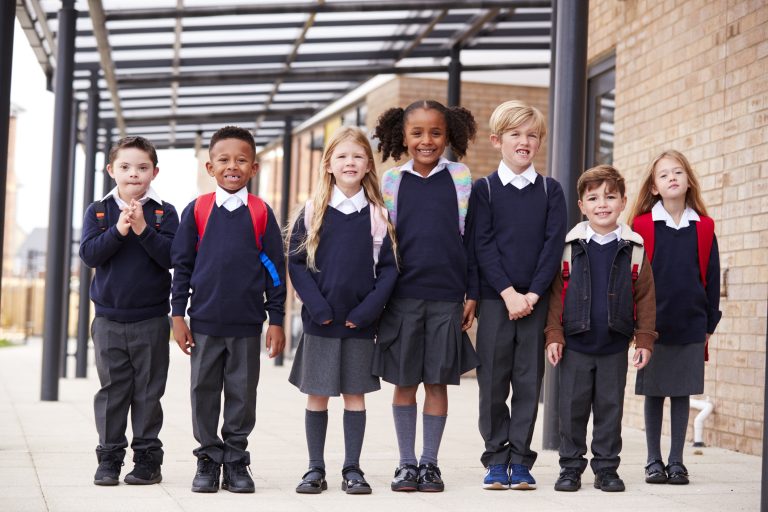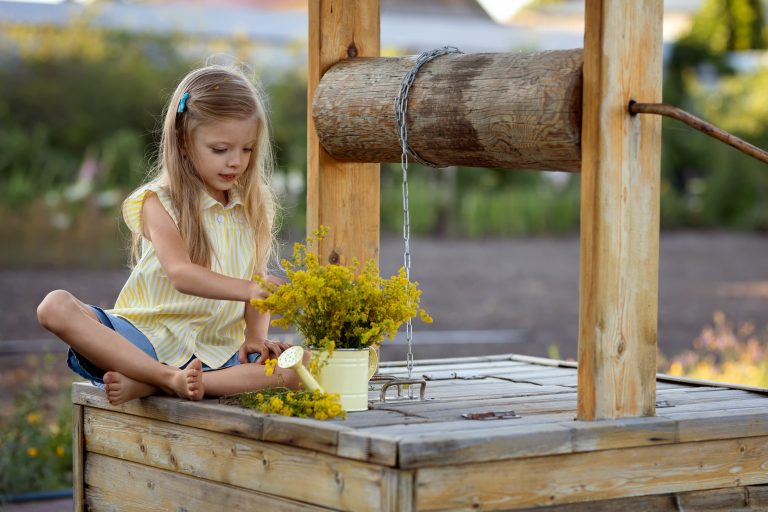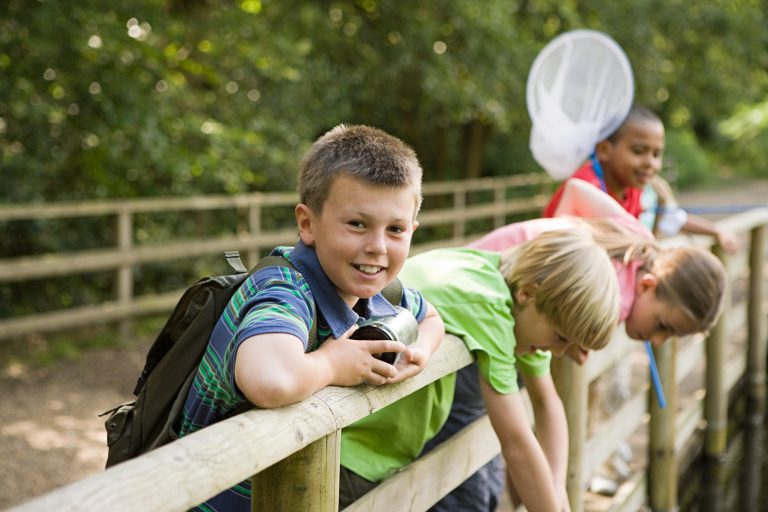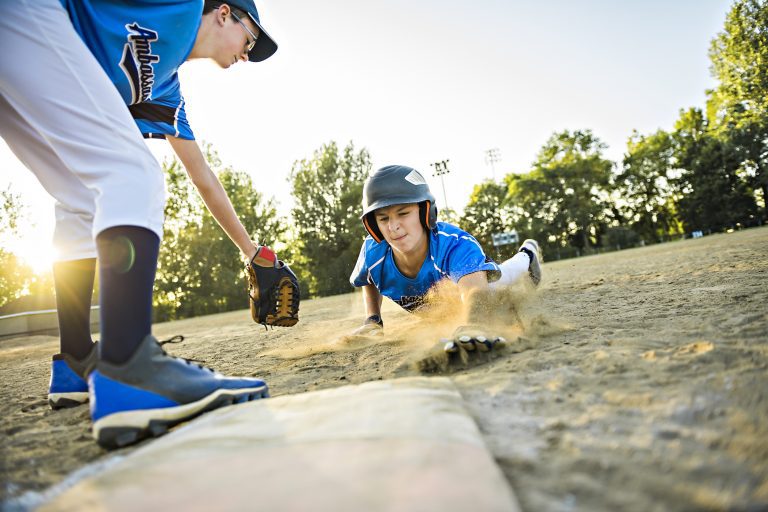“What on earth are they saying?!?” It’s a question I ask myself quite regularly as a mom of two teenage boys. It mostly occurs when they’re on their headsets gaming with friends. I’ll hear laughing, yelling, squealing, and then there will be conversations that I swear are in a different language. It’s like a secret teenage code. A code…that I’m about to crack! As parents, I feel like we should at least have an idea of what our kids are talking about, right? So, with a little help from my kids and a few Google searches, I now know what they’re saying – and so do you! Let’s dive in, shall we? “Sty” You know how our parents always called us lazy? Well, it’s like this generation said “Here, hold my Root Beer”. If you overhear your child saying things like… “He’s got so much sty!” or “That’s so sty!”,…
As the new school year begins, we’ll see the adorable “First-day” chalkboard signs, cute outfits, and photoshoots. Many families are embarking on a homeschooling journey. Whether this choice was made out of necessity, preference, or a blend of both, one thing is sure: the first day of homeschooling can also be made incredibly special with a little creativity and thoughtful planning. Here are some ideas to make the first day of homeschooling feel special. Set the Stage with Excitement Start the day with a positive and enthusiastic tone. Create a special morning routine that differs from your everyday activities this summer. Consider preparing a delicious breakfast together or having a small celebratory treat. Setting the table with decorations or special dishes can add a festive touch. Create a “First Day” Tradition for Homeschool Traditions provide a sense of continuity and excitement. Establish a tradition that marks the beginning of each…
As the summer heat settles in and the temperatures continue to rise, ensuring your baby stays cool and comfortable becomes a top priority for all parents. The heat can make anyone feel lousy, and as a parent, it’s very nerve-wracking when your baby can’t communicate with you exactly how the heat is bothering them. Babies are more sensitive to heat than adults, and proper precautions can make a significant difference in their well-being. Here are some essential tips to keeping your baby safe during hot weather: Tips for Keeping Your Baby Safe During Hot Weather: Dress Appropriately: Choose lightweight, loose-fitting clothing made from breathable fabrics like cotton. Opt for light colors that reflect rather than absorb heat. Hats with wide brims or caps that shade the face and neck are essential when outdoors. Keep Hydrated: Breastfeed or offer formula more frequently than usual to keep your baby hydrated. If your…
With the new school year on the horizon, the task of shopping for school uniforms for our little ones is looming. While the school’s uniform shop may seem like the easiest option, many savvy parents are discovering cost-effective and efficient ways to tackle this task. Let’s explore some of these tips and tricks together. Here, we’ve gathered all the best hacks to uniform shopping for elementary school kids that will not only make it less stressful and more efficient but also give you a sense of accomplishment in finding cost-effective solutions. Sometimes, it’s satisfying to get the best bang for your buck! Check the school guidelines on uniforms before you begin shopping: Before you start shopping, review the school’s uniform guidelines. Some schools have specific requirements for very specific colors, styles, and where to purchase uniforms. Label Everything: With all kids wearing the same uniform, labeling your child’s clothing can…
It’s very scary to send your kids with allergies off to school each year. When you have a new teacher, new kids in the class there is so much more potential risk. The best thing that allergy parents can do, is be prepared before the school year begins. Preparing to send a child with allergies to school requires careful planning and communication with school staff, teachers, and your kid! You need to know how to set up your kids’ allergy plan for school. Here’s a step-by-step guide to help you prepare to send your kid to school with allergies: Understand your child’s allergies: Make sure you have a clear understanding of your child’s allergies, including what they are allergic to, common symptoms, and emergency procedures. Others can’t help you if you don’t have all the details, so make sure to get all the info you need before starting a plan…
With summer in full swing, I’m sure most parents are wondering how to keep their kids entertained, with the cost of living increasing it’s becoming more difficult to take a group of kids for a day out to an amusement park, or zoo. Many parents are finding themselves at home, trying to fill the day without relying too heavily on screens. There are ways to thrive this summer, and not just survive. You can easily incorporate some Montessori principles into your summer routine that will make your life much easier, give your children independence, and have a fun and successful summer without overspending! Embrace the wonders of nature: budget-friendly outdoor adventures. Plan for a mix of structure and free play each day. This balanced approach not only keeps your children engaged but also reassures you that you’re providing a well-rounded summer experience. Montessori principles in your summer routine: Morning predictable…
Every kid is different and matures at their own pace. That said, there are some basic school-related skills that should be in place by the time your child enters Grade 8. Here is a review of essential skills needed by 8th grade, for today’s young teenager — plus some useful tips to help develop them. Social Skills Needed by 8th Grade Young people with strong social skills are better prepared to build positive relationships, meet new friends, navigate unfamiliar situations and manage peer pressure. The social world of preteens and teens is a complex one, and you want your child to feel as confident and comfortable as possible. Verbal communication. They should be able to choose suitable words and comments for the situation, while speaking a confident tone of voice. Awareness of non-verbal communication. At this age, they likely understand that body language can also send powerful messages. They will…
In the hustle and bustle of modern life, finding ways to enhance our children’s education while keeping them engaged can be a challenge. Luckily, the digital age offers a treasure trove of the best educational apps for kids designed to make learning fun and accessible for all ages. As a mom, I understand the importance of finding quality educational tools that ignite curiosity and foster a love for learning in our little ones. Here are the best educational apps out there, both free and paid, tailored to different age groups, from the early years of kindergarten to the advanced stages of middle and high school. Kindergarten/Grade One: Embarking on the ABCs of Learning For our youngest learners, educational apps should be like gentle guides, leading them through the wonders of early education while nurturing their budding curiosity and creativity. Best Free Educational Apps for kids: ABCmouse – Let your child…
Forest schools, a rising trend in recent years, offer a unique educational approach that celebrates outdoor learning and nature-based activities. With growing concerns about the adverse effects of screen time and sedentary indoor lifestyles, the positives of outdoor education are becoming apparent to many families. …the joy of seeing your child run, explore, and get a little dirty in the great outdoors is an experience like no other! It is critical to be well-prepared with the right gear and supplies for forest school. With the right items, the unique learning experience offered by the great outdoors will be more enjoyable for your kids. Here’s a list of essentials to buy and pack for forest school: Clothing Essentials Needed for Forest School: Comfortable Clothes: Dress in layers suitable for the weather. Consider moisture-wicking materials. Soft clothing like sweatpants should be worn under waterproof pants. Thicker pants are good for keeping bugs…
Any youth sport coach will tell you that a dirty uniform is a beautiful thing — a sign of true effort and hustle. As the parent, however, your hard work begins after the game, to get that uniform bright and clean again. To help you out, we’ve compiled some tried-and-true ways to keep your child’s jersey and other associated gear in great condition all summer. Here are some field-tested tips for washing baseball and soccer gear. How to wash a baseball or soccer uniform Your child’s team-issued uniform likely includes a jersey, hat, pants or shorts, and socks. There may be additional pieces such as a warm-up shirt or other spirit wear. Without the official uniform, your young athlete can’t go on the field. As such, all pieces should be treated with extreme care during the washing process to avoid any damage, shrinking or discoloring. Here’s a step-by-step game plan for uniform…










